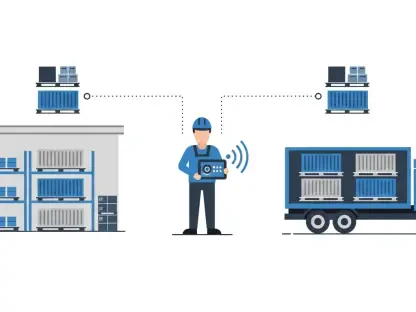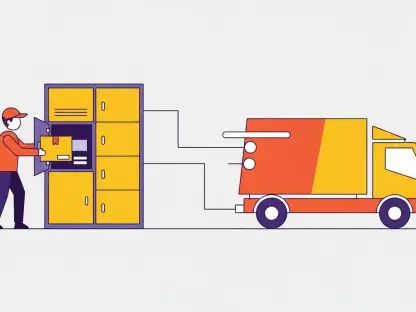In recent years, the concept of Extended Producer Responsibility (EPR) has gained significant traction in the United Kingdom, reshaping the landscape for businesses involved in packaging. Packaging EPR is a regulatory measure aimed at lessening the environmental footprint of packaging by holding producers accountable for every phase of the packaging lifecycle. This obligation includes the design, collection, sorting, and ultimate disposal processes of packaging materials. With approximately 78% of consumers placing sustainability high on their purchasing criteria, businesses face mounting pressure to align with eco-friendly practices, thus intensifying the relevance of EPR in today’s marketplace.
The Legislative Framework and Business Adaptation
Financial Implications and Legal Accountability
Under the packaging EPR system, businesses are required to ensure their packaging materials are recyclable, effectively compelling a transformation in operational strategies and material choices. The regulation includes an annual fixed-fee structure calculated on the materials used, incentivizing firms to prefer recyclable options to minimize associated costs. This framework not only underscores the economic impact of compliance but also emphasizes the necessity for companies to remain vigilant about legal accountability. Failure to comply carries hefty financial penalties, with fines scaled in accordance with the business size and severity of any non-compliance incidents. This legal mechanism is pivotal in reinforcing the commitment to sustainability, ensuring producers bear the full weight of waste management responsibilities.
Aligning with these responsibilities entails a shift of waste management duties from local government bodies to producers, a move aimed at integrating consumer sustainability aspirations within a legally binding framework. This transition fosters transparency and enhances accountability across the supply chain, ultimately driving a more sustainable business ecosystem. As enterprises navigate these regulatory dimensions, understanding the intrinsic linkage between sustainability and legal obligations becomes crucial to mitigating environmental impact and maintaining market integrity.
Registration and Reporting Requirements
For businesses operating under EPR parameters, meticulous attention to registration and reporting is imperative. The Department for Environment, Food & Rural Affairs (DEFRA) mandates that companies meeting specified thresholds promptly register and report all relevant packaging data. Large producers—entities with turnovers exceeding £2 million and handling over 50 tonnes of packaging annually—must fulfill comprehensive registration, reporting, and fee remittance requirements. On the other hand, smaller firms with turnovers over £1 million managing more than 25 tonnes of packaging annually are obligated to ensure registration and reporting compliance, albeit exempt from fee obligations.
Such mandates are vital in maintaining transparency and facilitating effective regulatory compliance. They provide a structured approach to capturing impactful data on packaging usage, ultimately guiding legislative refinements and industry standards. By aligning with these protocols, companies not only adhere to current regulations but also actively participate in shaping a sustainable framework that benefits the industry collectively. This synergistic approach helps to embed sustainable practices within corporate frameworks, fostering an environment where sustainability is both an ethical and operational imperative.
The Strategic Shift Toward Sustainability
Economic and Environmental Benefits
One notable trend emerging from the implementation of packaging EPR is the strategic shift toward sustainable packaging solutions. Businesses increasingly recognize the dual benefits of environmental responsibility and economic efficiency inherent in these sustainable practices. A case study with Smurfit Westrock for Cappellaro Fruits highlighted this synergy, showcasing significant carbon emission reductions alongside the elimination of vast quantities of non-biodegradable containers. Importantly, these environmental advancements were achieved without inflating packaging costs, underscoring the viability of sustainable options within existing budgetary frameworks.
The transition to sustainable materials aids in reducing the carbon footprint and enhancing consumer perception and brand value. As stakeholders prioritize environmentally conscious practices, companies adopting these strategies can garner goodwill, translating into competitive advantages in the market. Such strategic decisions reflect the broader business imperative to align operational goals with sustainability targets, fostering a culture where environmental stewardship equates to business success. This holistic approach emphasizes the role of innovative packaging solutions as catalysts for industry transformation.
Collaborative Partnerships and Compliance
Navigating the complexities of EPR compliance necessitates strategic partnerships, particularly with sustainable packaging providers. These collaborations can prove invaluable, offering essential support to businesses in reporting packaging data accurately, optimizing costs, and ensuring alignment with evolving standards. Moreover, staying informed through resources like PackUK newsletters can provide critical insights into legislative updates and best practices, equipping businesses to devise robust compliance strategies effectively.
By leveraging these partnerships, companies can streamline their compliance processes, alleviating the administrative burdens often associated with regulatory adherence. This proactive stance helps in meeting current obligations and prepares businesses for future regulatory changes, ensuring long-term sustainability and competitive prowess. Through strategic collaboration and an informed approach, enterprises can not only meet but exceed compliance expectations, championing a proactive commitment to sustainability and positioning themselves as industry leaders in environmental responsibility.
EPR: A Catalyst for Industry Innovation
In recent years, the United Kingdom has seen a rise in the importance of Extended Producer Responsibility (EPR), dramatically transforming the way businesses manage packaging. The regulatory initiative places the onus on producers to minimize the environmental impact of packaging by making them responsible at every stage of a package’s lifecycle. These stages encompass design, collection, sorting, and disposal of packaging materials. As sustainability becomes a key factor for consumers—78% of them prioritize it when buying—businesses are confronted with increasing pressure to adopt eco-conscious methods. This shift underscores the importance of EPR in today’s market and serves as a catalyst for companies to innovate and implement sustainable packaging solutions. Additionally, EPR encourages businesses to rethink their packaging strategies, fostering a circular economy where materials are continuously repurposed. By complying with EPR regulations, companies not only meet consumer expectations but also contribute to a sustainable future.









